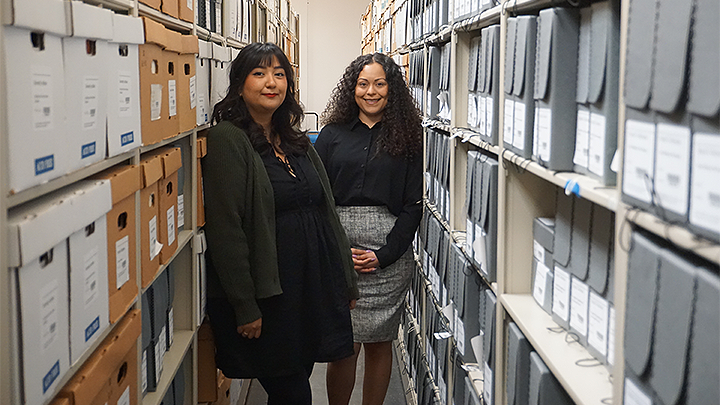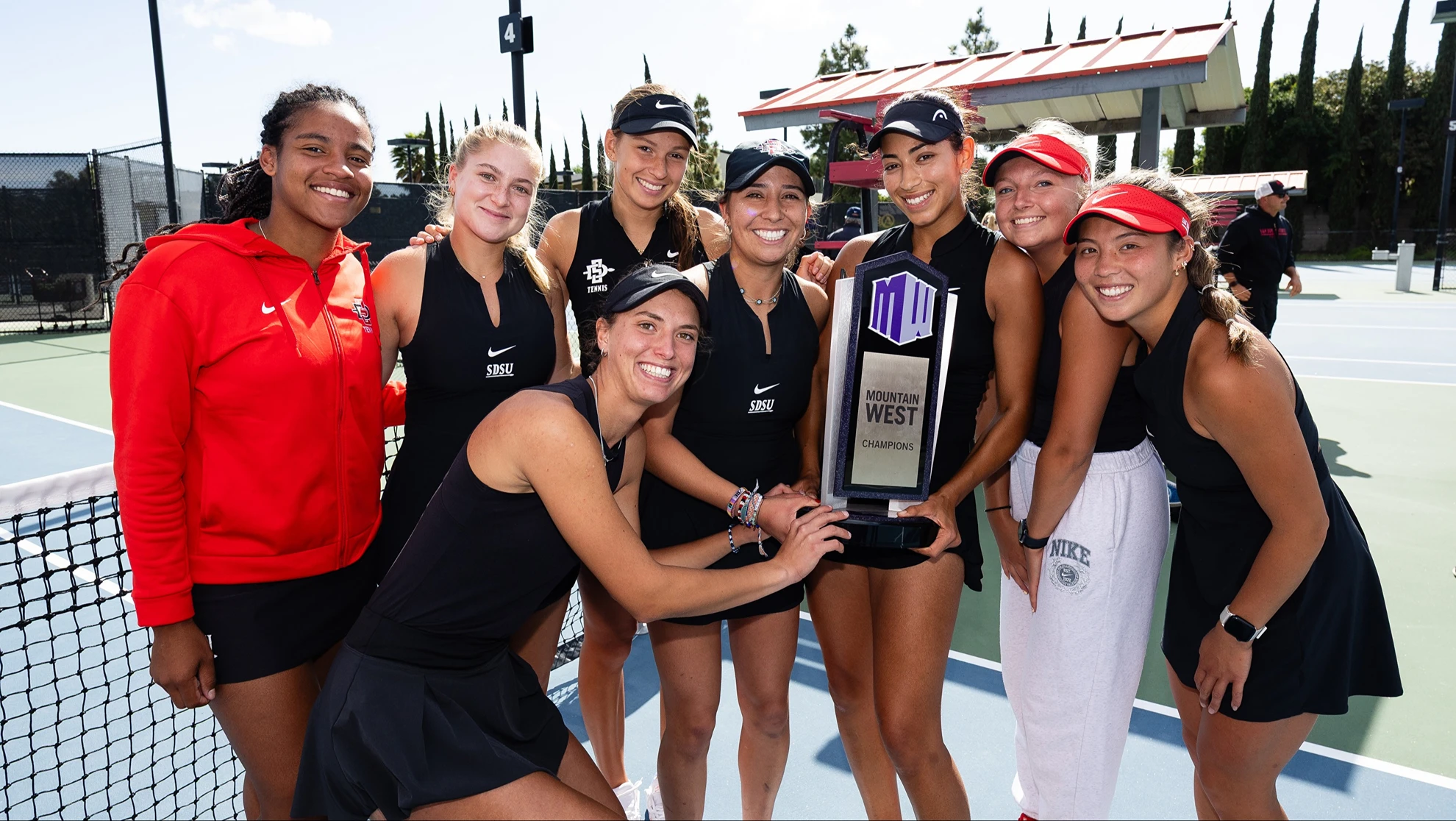Making San Diego’s Chicana/o history available around the world
A new grant allows for digitization of materials from the Chicana/o education movement

Archives on the history of the Chicana/o education movement in San Diego ― materials that would rise more than 110 feet if placed into a single stack ― will be digitized at San Diego State University for worldwide access under a grant from a nonprofit organization supporting libraries.
Erika Esquivel, Latin American and Indigenous Communities Archivist at the University Library, and Natalie Santizo, assistant professor of Chicana and Chicano Studies in the College of Arts and Letters, drew $300,000 in support for their 36-month “Digitizing the Education Movimiento” project from the Council on Library and Information Resources (CLIR) to digitize the Chicana/o Archive, a collection of scrapbooks, correspondence, newsletters, newspapers, flyers, syllabi, and additional materials gathered and housed at SDSU.
“This project makes visible a crucial part of not only our California history but also its continuing influence on the present,” said College of Arts and Letters Dean Todd Butler. “It’s precisely the type of work a publicly-committed research university should be doing.”
The digitized materials will be browseable online, available for scholars interested in or researching the Chicano education movement.
In 1969, Chicanos from what was then San Diego State College participated in drafting the historic Plan de Santa Bárbara that established the blueprint for Chicana/o higher education programs.
The plan was used throughout the country to establish Chicano studies programs. SDSU is home to one of the first Chicana/o Studies departments in the nation, but it has been overlooked in the history of the Chicana/o education movement, the pair said in their grant proposal. This project challenges the presumption that the movement occurred solely in Los Angeles by expanding the geographical scope to the San Diego border region.
Alongside digitizing materials like the Chicana/o Studies Department Papers, this project is intended to unearth Chicanas' hidden voices and labor required while pursuing higher education.
Santizo said the Chicana/o Archive, established in 2007 with contributions from SDSU faculty, staff, community college faculty and community members, represents a grassroots movement to uncover and preserve hidden voices of San Diego's history. It is especially strong in documenting the role of Chicanas in higher education. The digitization project will “re-activate, expand, and promote the Chicana/o Archive at SDSU,” she said.
Esquivel said the materials being digitized “are some of the most popular archival materials in Special Collections & University Archives (SCUA) documenting the history of the SDSU Chicana/o community and San Diego as a whole.”
“While SCUA is open to the public, digitizing these materials and providing bilingual descriptions will further enable community access online and help keep this important history alive,” she added. “We will be able to give these collections and history the attention they deserve.”
Scott Walter, dean of the University Library, said the project “is one of several we have pursued in recent years to expand access to, and promote use of, library collections representing the diversity of the San Diego community, and it is especially notable because of the opportunities that have been built in to engage the community beyond the campus walls.”
The project will conclude with a series of community workshops. about archives and how primary sources are collected. “Community members will get to bring personal items for digitization, receive archiving materials to preserve their items, and hear from other community members who have donated personal collections to Special Collections,” said Santizo. “We will also share some of the newly digitized items from the grant, and encourage attendees to utilize the digital collection.”
“I hope this project leads to a successful reactivation of the Chicana/o Archive grounded in community collaboration,” Santizo added. I hope it demonstrates SDSU's commitment to community-collaborative projects grounded in preservation and expanding knowledge.”
Esquivel added, “My hope is that this project is just the beginning and that we can spark an interest in archiving both on and off campus.”



